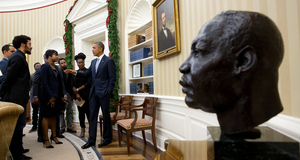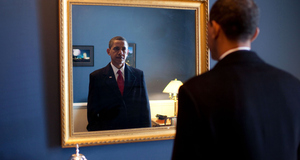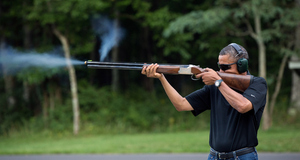From Interstate - Journal of International Affairs VOL. 2009/2010 NO. 1Barack Obama and the Nobel Peace Prize: Justified or World Optimistic?
By
Interstate - Journal of International Affairs 2010, Vol. 2009/2010 No. 1 | pg. 1/1
KEYWORDS:
On the 20th January, 2009, millions of people celebrated the inauguration of Barack Obama, the 44th President of the United States and also the first African- American President. Yet the news that he had been awarded a Nobel Peace Prize in October 2009 shocked and confused many people. Their infatuation for this man had not faded but the question escaping everyone’s lips was, “What had he done to deserve this prestigious prize?” Within nine months in office, Obama has managed to help re-build the US economy, create new regulations to limit the effects of climate change, has expressed his desire for better relations between the US, Russia and the Middle East and attempted to negotiate with Iran. However, do any of these constitute being awarded the Nobel Peace Prize? The Head of the Nobel Committee for the prize believes so stating, “It is because we would like to support what he is trying to achieve.” The emphasis on many of the congratulatory reports focus on what Obama is going to do or trying to do. It soon becomes apparent that the question shouldn’t be “What has Obama done?” but, “What is Obama going to do?” Paul Reynolds from BBC News stated that the, “award was unexpected and might be regarded as more of an encouragement for intentions rather than a reward for achievement.”1 According to a BBC news article, the majority of world leaders had expressed their support for Obama receiving the award whilst 75% of the comments received from the public showed them to be bewildered by the decision. In previous years the prize was awarded to people after they had completed or contributed to an act that led to greater peace amongst the international community. Theodore Roosevelt was awarded the prize in 1906 after helping put an end to the Russo-Japanese war; Wilson received the prize in 1919 due to his participation in the creation of the Versailles Treaty and vision for world peace. The end of the Cold War saw Mikhail Gorbachev being recognised for the prize. Yet others deem the Nobel Peace Prize to be losing its prestige. After Henry Kissinger won the prize for his participation in the Paris Peace Accords of 1973, shortly before the catastrophic accounts of war crimes were leaked to the press, Tom Lehrer stated that, “political satire becomes obsolete when Henry Kissinger was awarded the Nobel Peace Prize.” Yet World Leaders seem to be congratulating Obama on his premature award and see it as a template for the future. Germany’s Angela Merkel stated that it was an “incentive to the President and to us all to do more for peace.”2 French President Nicholas Sarkozy believes that the Nobel Peace Prize has, “confirmed America’s return to the hearts of the people and the world.”3 Although many of the World Leaders are congratulating Obama for the award, some figures have refuted the idea and believe that it has completely undermined the traditions of the prize. Mehdi Hasan disagrees with the nominated winner and suggested that, “the cult of Obama has elevated him to a god-like, saint-like superhuman.”4 Awarding this prize based on, “what he is trying to achieve,” surely is placing him on a pedestal, where if he fails to bring about the necessary changes to the international order there will be a harsh reprisal awaiting him. Since it became public knowledge that he would be entering the Presidential race, he has become such a well-known and loved figure. Yet is it fair to deem him the miracle maker? As the former President of Finland suggests, “the world expects that he will also achieve something.”5 After the controversy surrounding the Bush Administration and the bad press they received their foreign policy, Obama is seen in a more hopeful light. A mediator not a fighter, interested in the affairs of the world, not just affairs affecting US interests. As Glenn Greenwald stated, “Obama has changed the tone America uses to speak to the world.”6 In a world with corruption, terrorism and global crime, will peace ever be attainable? And can it ever be achieved by one man? It seems to me that Obama’s Nobel Peace Prize has been orchestrated in such a way that despite the pessimism in the world today, Obama has been a ray of hope not only within his own country but on a larger international scale, that by developing this superior, unification seeking image then the world’s leaders will follow suit and only then can we, in a united hope for peace, begin the necessary steps in creating a world focused on harmony. It may be optimistic to grant such a prestigious award based on a promise. But by promoting that promise and encouraging others to support and carry forward that promise. Obama must succeed and carry forth the vision of peace or risk another humiliating blow to America’s superpower status. Endnotes
Suggested Reading from Inquiries Journal
Inquiries Journal provides undergraduate and graduate students around the world a platform for the wide dissemination of academic work over a range of core disciplines. Representing the work of students from hundreds of institutions around the globe, Inquiries Journal's large database of academic articles is completely free. Learn more | Blog | Submit Latest in International Affairs |

















